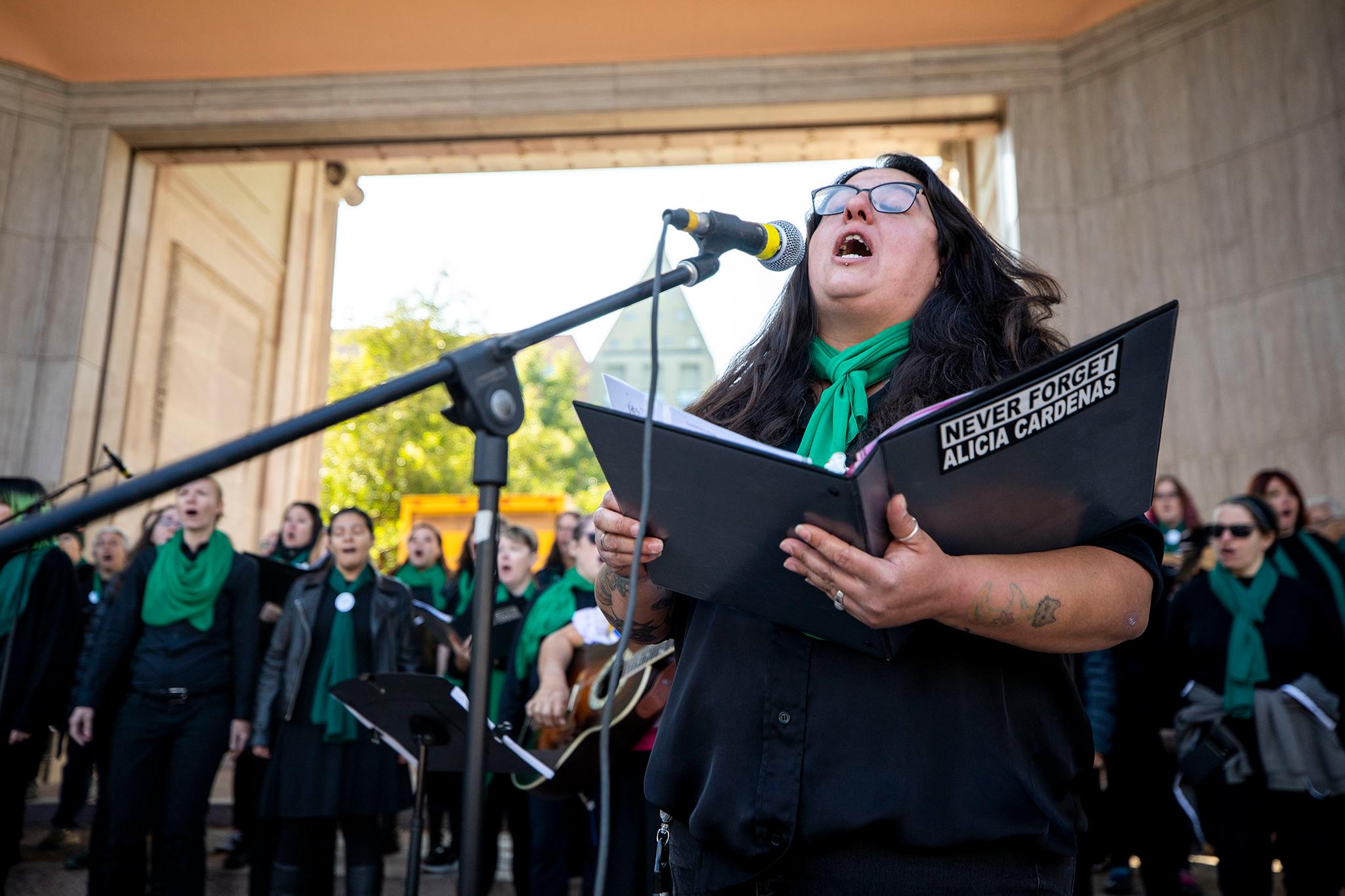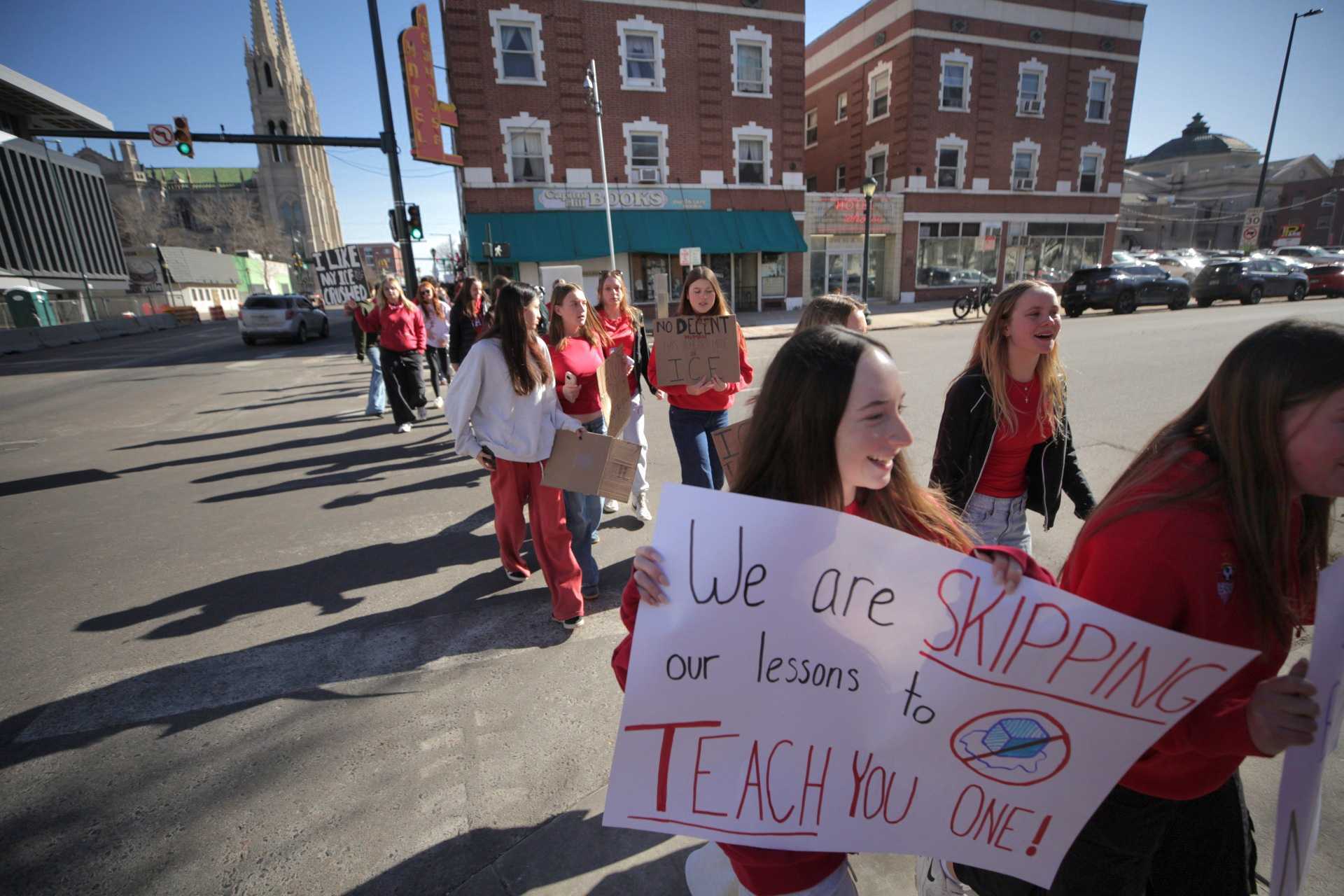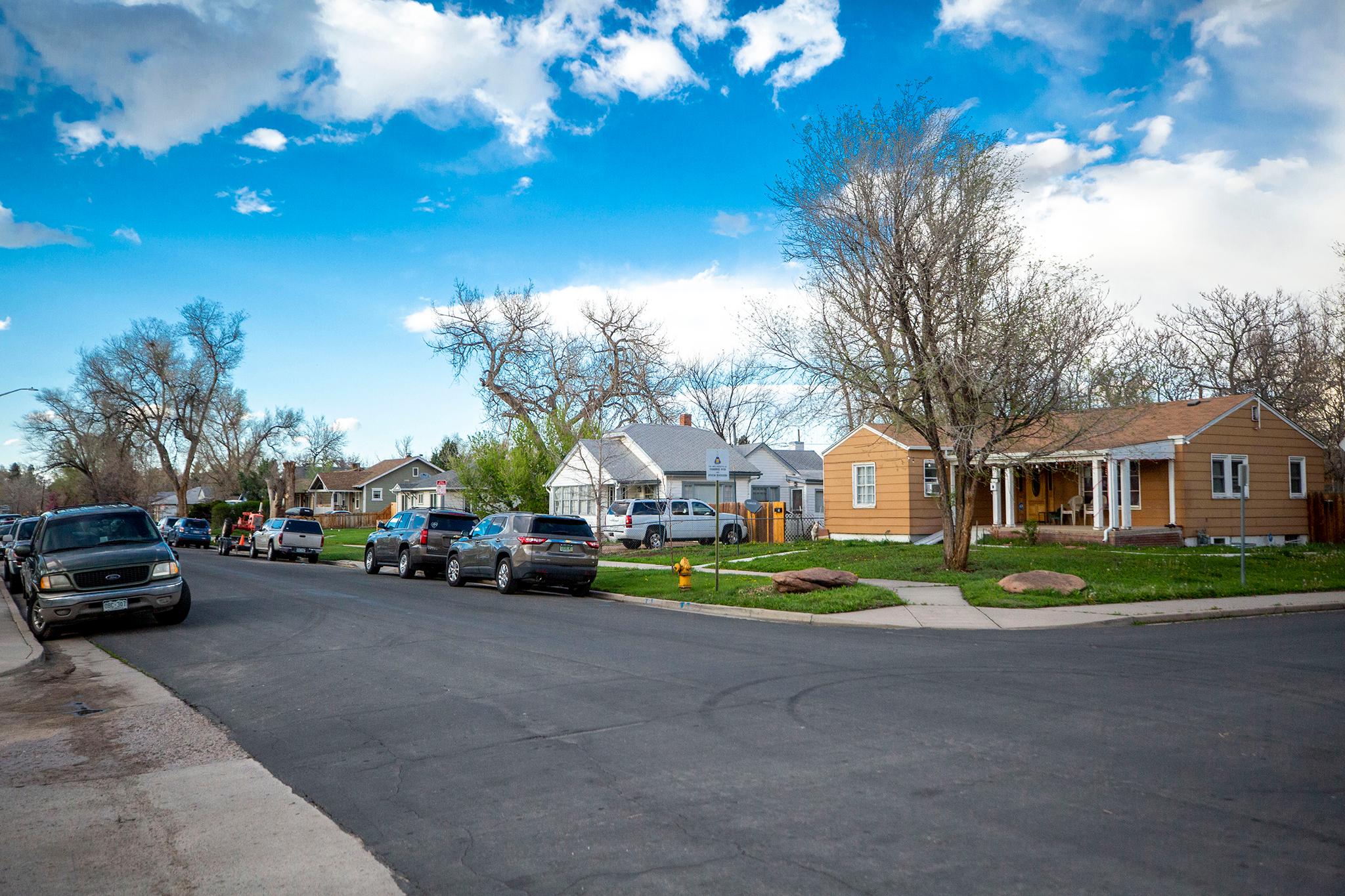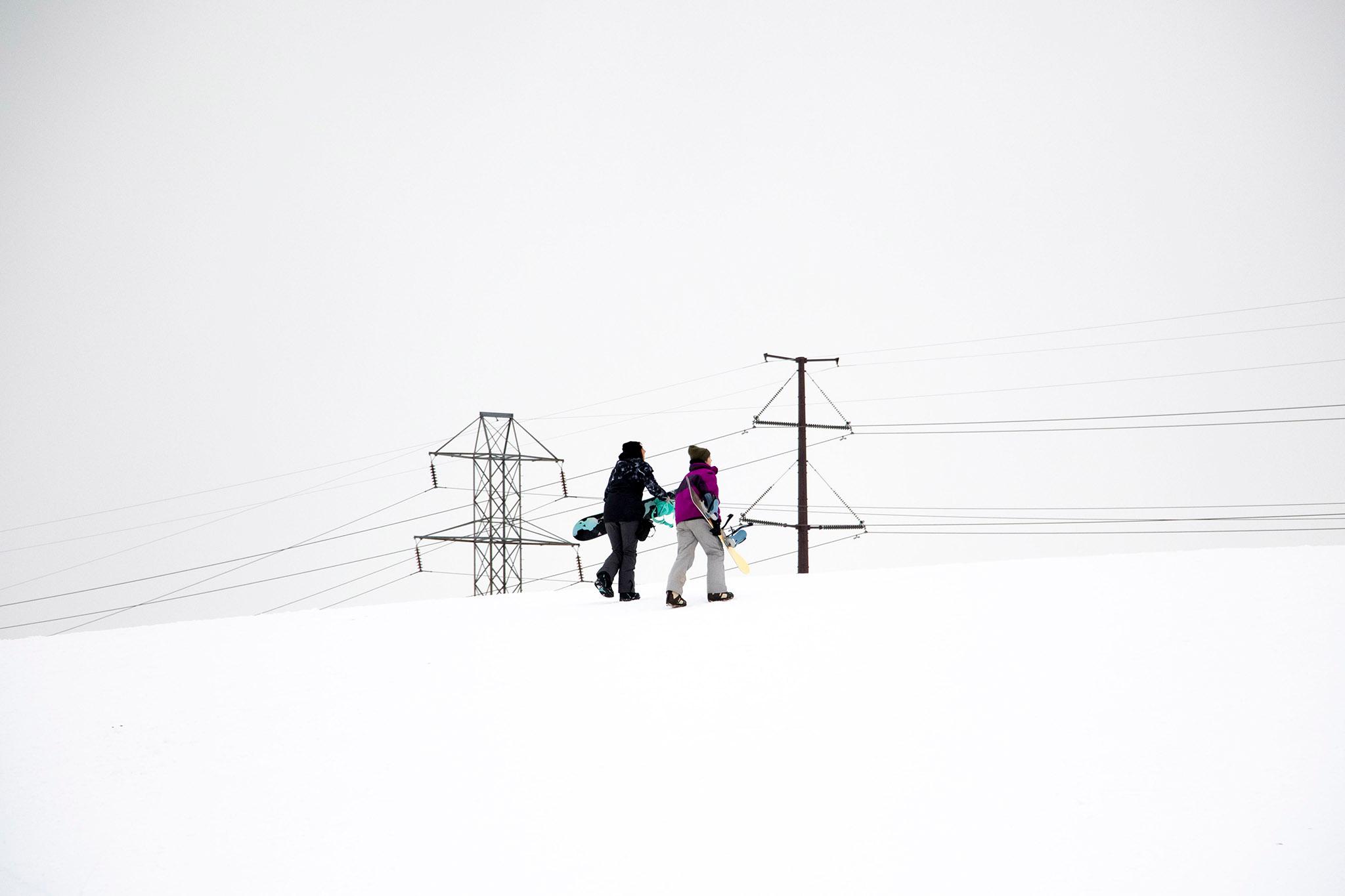"They sowed fear in us. We grew wings."
The Denver Women's Chorus sang "Canción Sin Miedo" in Spanish, a song by Vivir Quintana.
"They steal friends from us. They kill our sisters. They tear their bodies. They make them disappear. Don't forget their names."
Around them, Civic Center Park's Greek Amphitheater was filled with protesters readying for the first Denver Womxn's March since the pandemic began.
"Nothing will shut me up anymore. It's enough. If you touch one of us, we all will answer."
It was Vanessa Laverde's first march here. She moved from Texas only two years ago, but she arrived in time to get to know Alicia Cardenas before she was murdered by a white supremacist in December 2021. Laverde led the choir, all dressed in black, through Quintana's song. She dedicated it to Cardenas' memory.
"We sing fearless. We ask for justice. We shout for every missing woman."
Laverde was emotional when she finished. Music, she said, is powerful in its transcendence, and necessary to help communicate what the protesters who came to Civic Center on Saturday morning were fighting for.
They decried the Supreme Court's recent rollback of abortion rights and Republican politicians' attempts to restrict medical procedures for transgender youth. They spoke the names of Breonna Taylor and Sandra Bland, connecting the movement against police brutality with their advocacy for women's rights and safety. They chanted in solidarity with young Iranian women, who have been protesting the police killing of 22-year-old Mahsa Amini for weeks.
They spoke about Cardenas' death as part of this larger struggle.
"We sing today to honor the life of Alicia Cardenas, cut so brutally short, and those other women whose lives have been lost to violence and unjust legislation," Laverde told the crowd.
"The center of the earth shall tremble at the sisterly roar of our love."
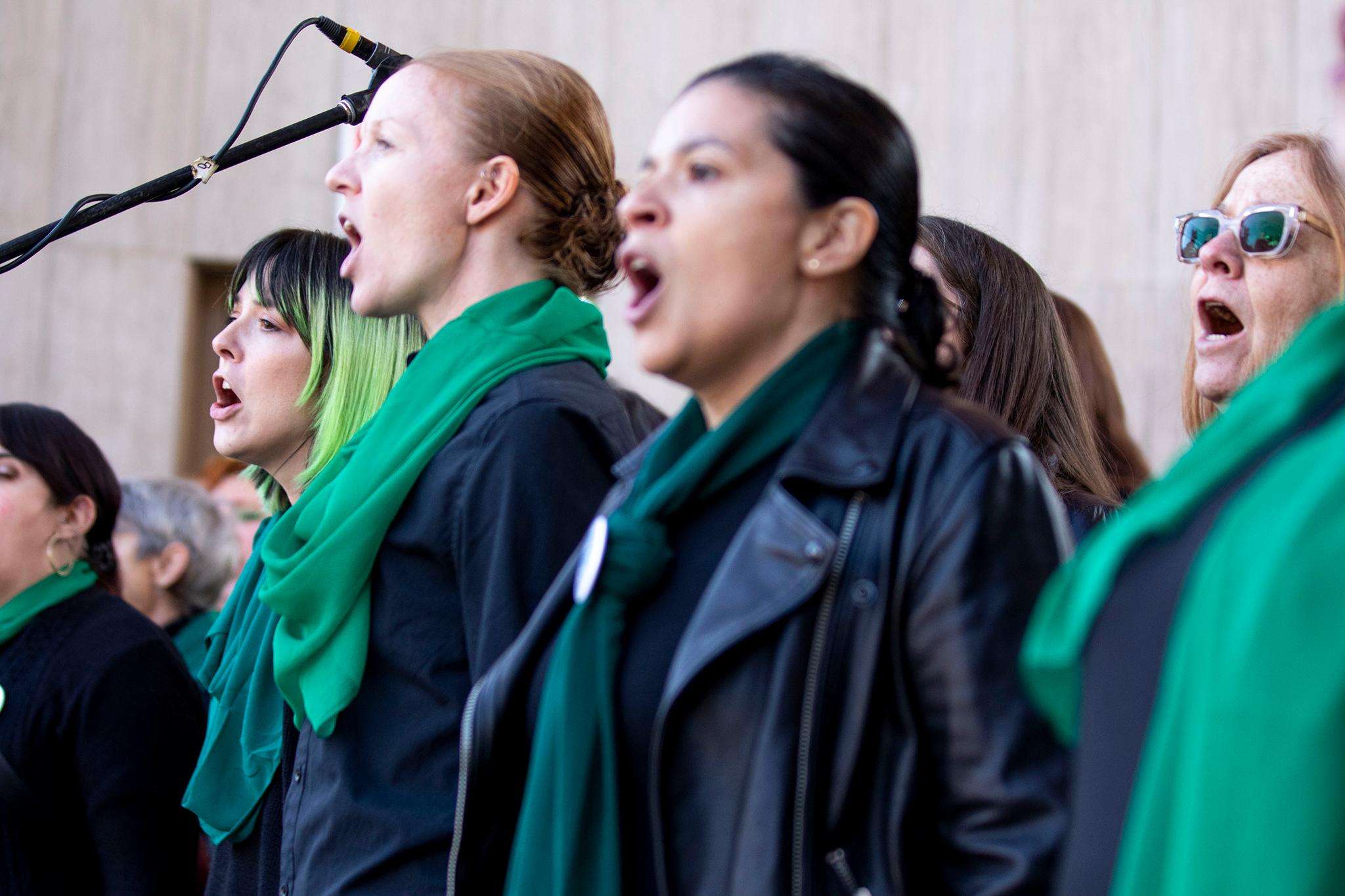
The Denver Women's Chorus has connected art with politics for almost 40 years.
The group was founded in 1984 by a group of lesbian singers who sought a safe place to express themselves. Back then, their website says, Denver and the nation were not so accepting of their sexual orientations. Founding members left their names off of programs to avoid losing jobs or worse.
Clelyn Chapin, the chorus' artistic director, said the group's mission has always been intertwined with activism.
"At times, it's gone back and forth in how political it got. But when the time calls for it, we step up," she told us.
2022, she added, is one of those times.
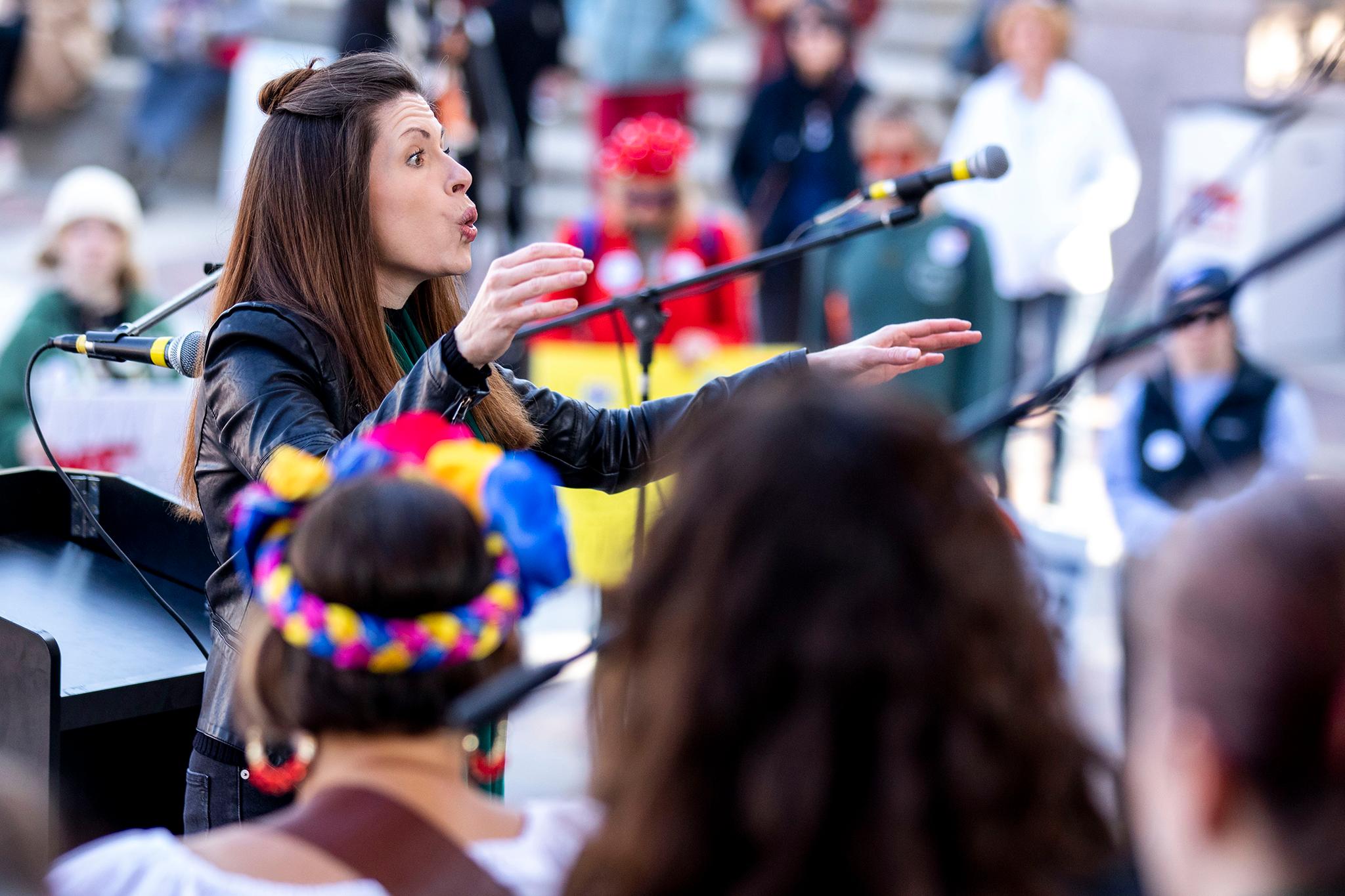
"In all of the great movements throughout political history, music has been involved in some way, shape or form and, in some ways, extremely central to the movement and progress," Chapin said. "We don't have that same kind of involvement between music and political action these days as we did, and we see that as one role we can fill."
Chapin grew up in rural Arkansas and was raised in a "restrictive" church that barred women from speaking during services. Her parents pushed her to find her own ideas and values, she said, and the "misogyny" she experienced as a child pushed her toward progressive politics.
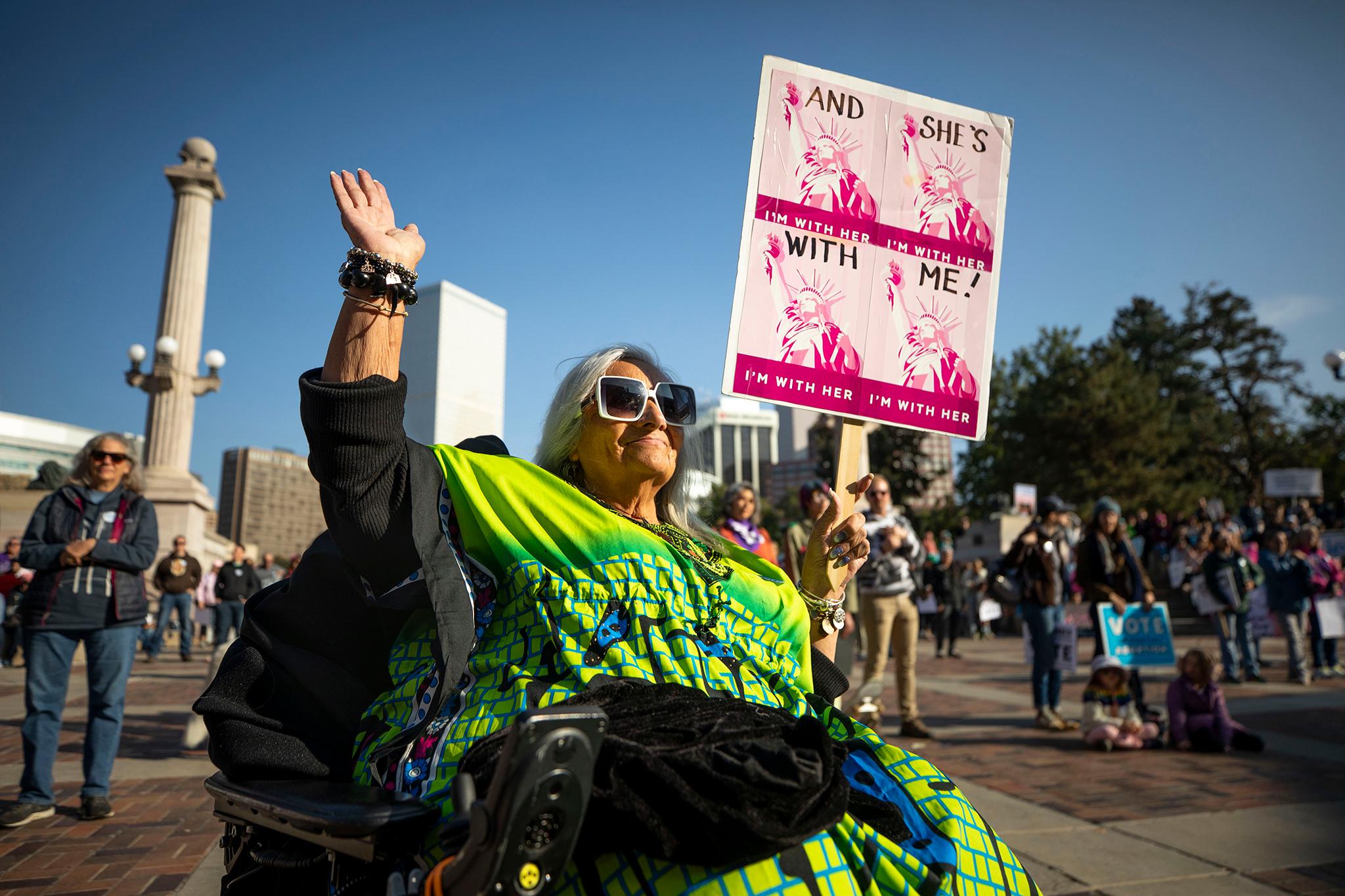
Though her beliefs are worlds apart from her relatives', she said she's worked to stay connected to her family. Maintaining these relationships could be one small way to break through to people, be it through conversation or song, in a moment when this country is fighting over spirituality, private life and control.
"What I'm noticing among some of my own family members is they themselves have actually had to have abortions in cases of high-risk pregnancies, and slowly people are coming to understand the nuances behind this very harmful legislation," she said. "So I always hope."
That hope was a central message on Saturday morning.
It was an explicit theme from some speakers, like Colorado Attorney General Phil Weiser, who called on the crowd to "hold out hope."
It was an affirmation as people were tired of fighting. At the same time, there was much work to do. Others at the podium urged protesters to vote and make sure their neighbors did, too.
"Sometimes it's been hard to get out of bed with the way things are going right now," said Megan Fine, vice chair of Womxn's March Denver, "but we're in a crucial time, especially six weeks out from the election."
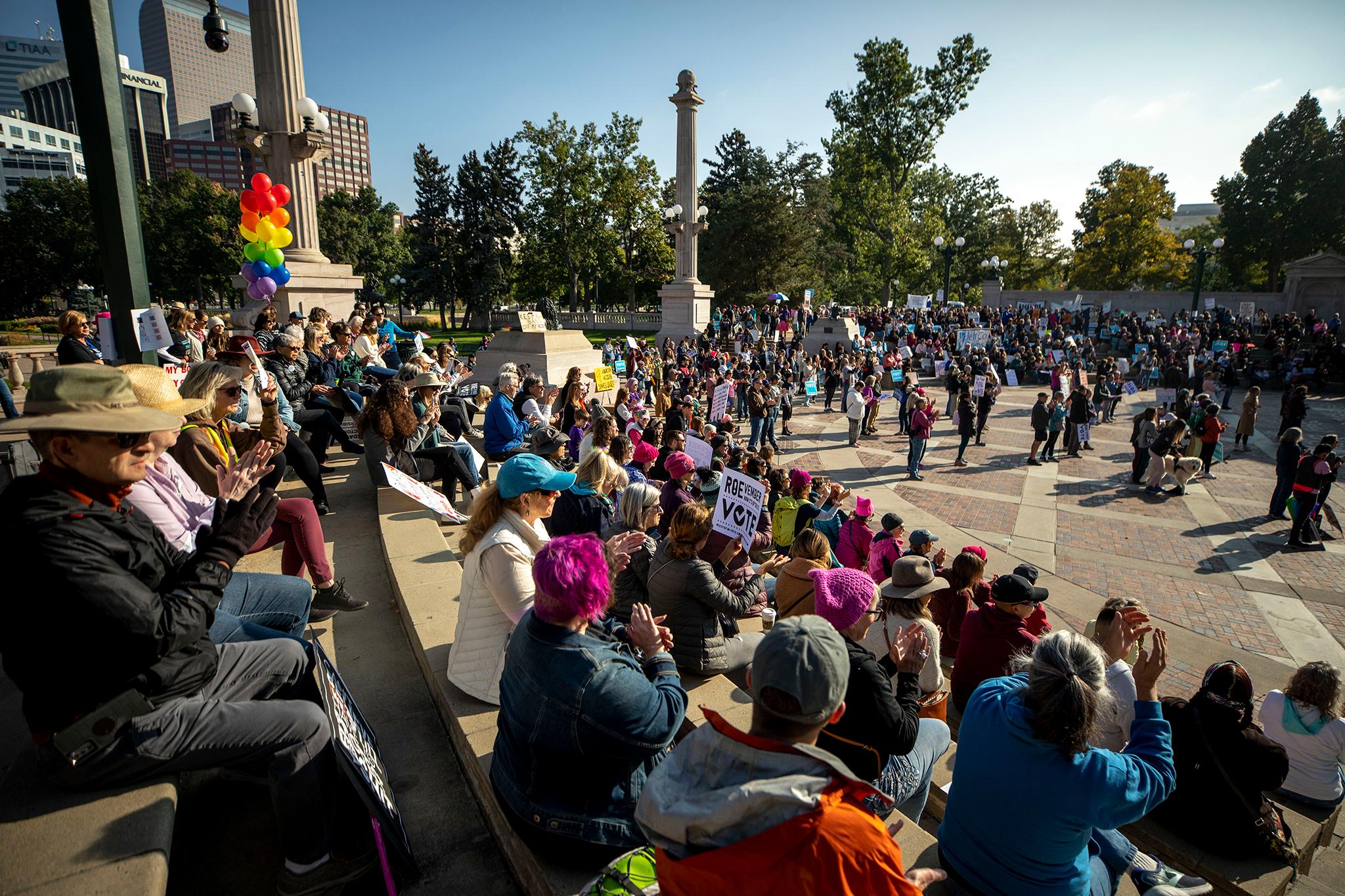
That burnout, she added, was one reason far fewer people attended this year compared to the first march in 2017. It was all the more reason to end the morning of speeches with an uplifting song.
"Music has some power that just cannot be captured," Chapin said. "It affects people in a different way than just saying those words ever could."
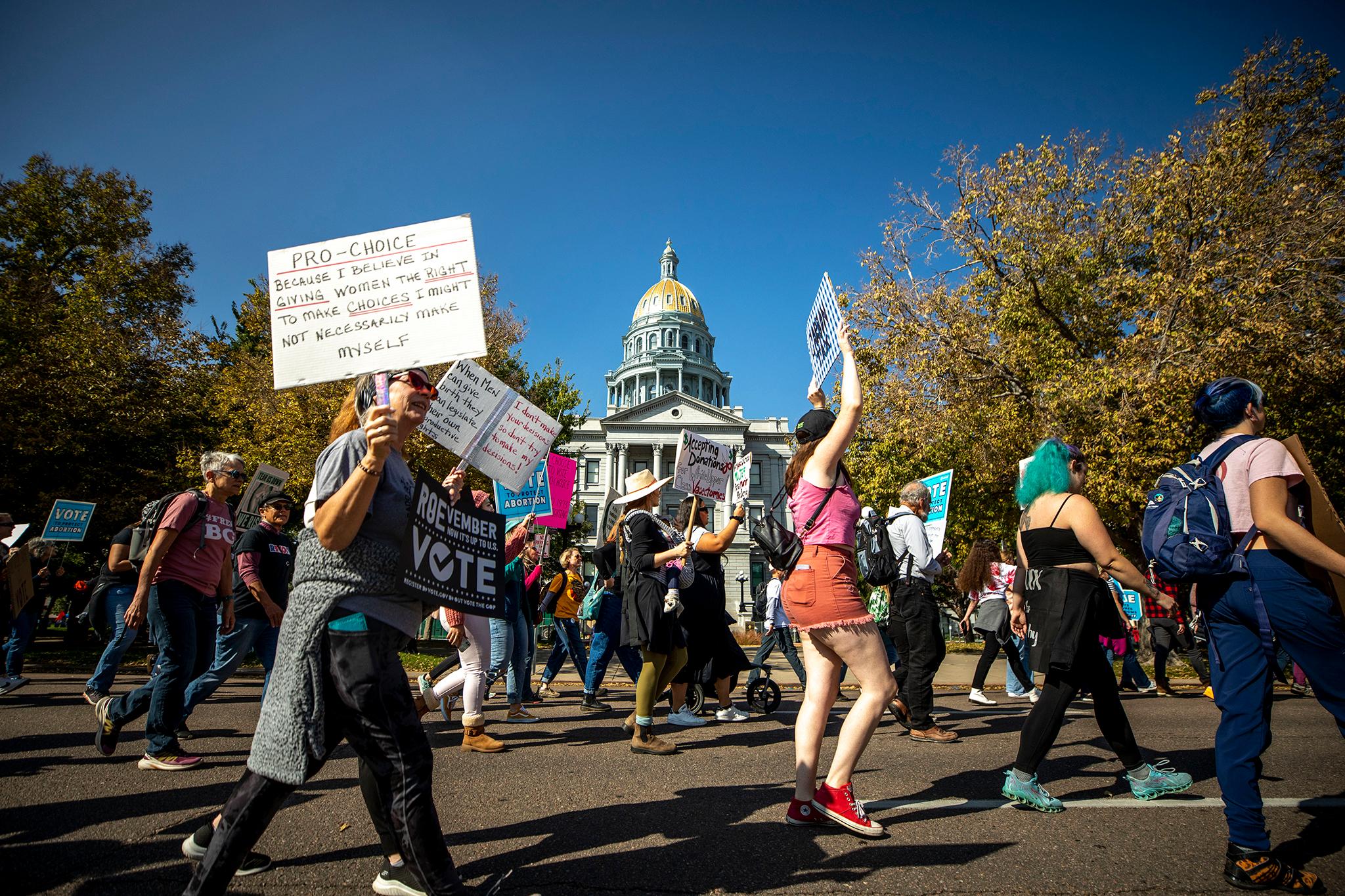
And for Laverde, who said Alicia Cardenas' community is still struggling with her absence, it also was a moment to heal.
"Any kind of anger, sadness, whatever's going on through your body, singing is a great way to release those emotions and capture what you want to portray to people. People feel that with you, and it's more powerful when more people feel with you," she told us. "This is a very important thing, and I think we all need to stand together."

